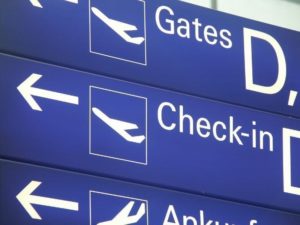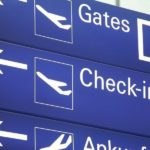
The Customs and Border Protection (CBP) agency has announced it has abandoned its plans to require U.S. citizens entering and exiting the country to submit to facial scans as an expansion of its Biometric Exit program.
“There are no current plans to require U.S. citizens to provide photographs upon entry and exit from the United States,” the agency said in a statement. “CBP intends to have the planned regulatory action regarding U.S. citizens removed from the unified agenda next time it is published.”
The decision comes after criticism and opposition from the American Civil Liberties Union (ACLU) and Democratic lawmakers who warned that it represented a severe infringement on the privacy rights of American citizens.
“This is a victory for every single American traveler who flies on a plane, and a reminder that the we must remain vigilant protectors of our right to privacy,” said Sen. Edward J. Markey (D-Mass.). “Thanks to swift and public pressure, Homeland Security is reversing course and not moving forward with its dystopian facial recognition proposal at U.S. airports.”
The Biometric Exit program is used at more than 20 airports across the U.S. and requires the CBP to collect photographs of foreign travellers at U.S. entry and exit points and match them to existing travel documents.
The CBP’s initial plans to expand the program to include U.S. citizens were reportedly to simplify the logistics of having a separate screening process for non-citizens, which would in turn speed up the security check-in process for all travellers.
Jay Stanley, a senior policy analyst with the ACLU, applauded the decision to abandon the inclusion of U.S. citizens, but also urged Congress to guard against any potential future expansions of the Exit program.
“The Department of Homeland Security’s plans to spread face recognition surveillance nationwide remain alarming, especially given the lack of congressional authorization and sufficient safeguards, the government’s past security failures, and unanswered questions about the technology’s effectiveness, bias, and broader societal implications,” he commented.
Biometric identification is already used at a number of U.S. airports and its use is expanding rapidly – and not just because of the CBP’s efforts. Recently, United Airlines and CLEAR, the provider of its own biometric passenger processing system, announced a partnership to make CLEAR’s biometric processing lanes available at every United travel hub in the country.
Sources: The Washington Post, FedScoop
–
December 6, 2019 – by Tony Bitzionis





Follow Us